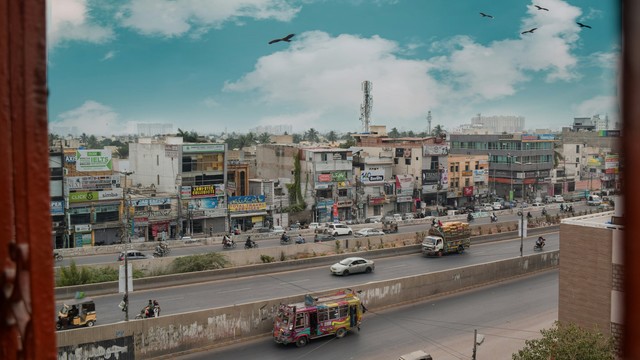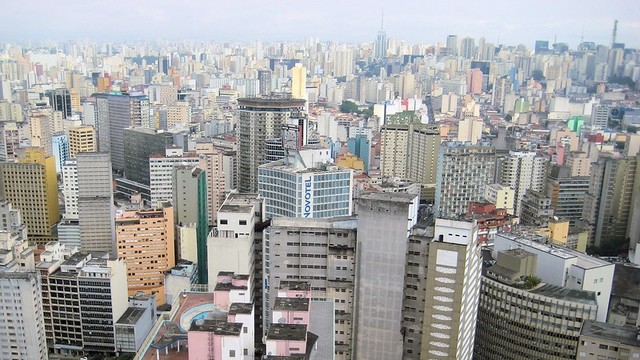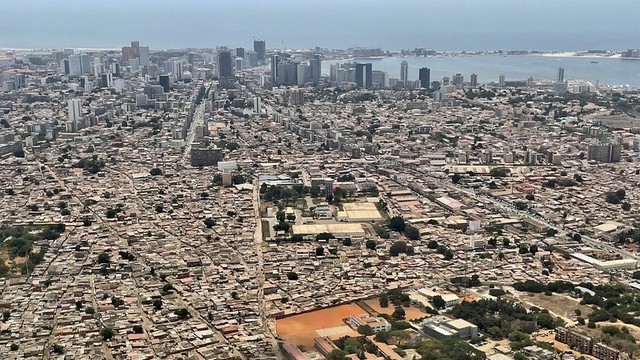An unexpected cooperative project to lighten women's pandemic clothes-washing burden
Our guest bloggers describe how limited funds, made available during the pandemic, led to a cooperative business start-up which eases the domestic burden on women, benefits the local community and improves public health by reducing infection risk.



As many households in Jakarta don't have water supply or space inside the house, women have to wash clothes in the lane outside (Photo: copyright JRMK Network)
This is one of several case studies drawn from a new study by the Asian Coalition for Housing Rights (ACHR) on how urban poor community networks in Indonesia, Myanmar, the Philippines and Thailand responded to the COVID-19 crisis in effective and strategic ways. Their projects have included the cooperative rice distribution project in Jakarta – the focus of an earlier blog – and this blog on community laundries.
The Jaringan Rakyat Miskin Kota (JRMK, or urban poor network) is a network of 25 large kampungs (informal communities) and six street vendor cooperatives in Jakarta. It is supported by the Jakarta-based NGO Urban Poor Consortium (UPC) (link in Indonesian). JRMK surprised everyone when they decided to use some modest grant funds for COVID-19 relief to set up the first of several cooperatively-managed laundry services.
The scale of the laundry challenge
Laundry might seem an unlikely item for a list of urgent pandemic needs. But washing clothes in Jakarta's crowded kampungs, even at the best of times, is a toilsome business. And is a task that invariably falls to women, who spend two or three hours every day washing and ironing the family's clothes.
Their job is made harder by the frequent flooding, erratic electricity supply and serious water supply and quality problems, as well as space and water supply limitations inside their homes.
The pandemic only increased this burden for women. Here is how Asmiawati, who helps run the first cooperative laundry service in Kampung Akuarium, described it:
"During the pandemic, the burden of work in the house increased for women – especially washing and ironing clothes – which takes up more time and energy than other chores. If one family member got infected with the virus, or was even suspected of being infected, we had to separate that person's clothes from the others and wash them at a higher temperature to kill the germs.
“And we couldn't wear clothes again if we’d been out in them, since they may be contaminated with the virus. Some family members changed into clean clothes several times a day, so the piles of dirty laundry grew very quickly.
"To make things more difficult, water is always scarce in some neighbourhoods, and the situation was made worse when everyone was stuck at home during the lockdown. All this made it even harder for women to wash their family's clothes."
The laundry service was designed to lighten the clothes-washing burden of overworked and COVID-19 stressed women like Asmiawati. The first of five planned laundry services was set up and run by the newly-formed cooperative in Kampung Akuarium – a large community on public land – which is in the process of being rebuilt in situ as low-rise blocks of cooperatively-managed apartments, in a precedent-setting collaboration with the Jakarta municipal government.
Getting the service up and running
The JRMK network provided a ‘start-up package’ of laundry equipment (one high-capacity professional washing machine, one drying machine, one heavy-duty steam ironing machine, a big table and a stock of good laundry soap). The package cost 30 million rupiah (US$2,083), which the cooperative will gradually repay as the business takes off.
The laundry enterprise is run by three women who are all members of the Kampung Akuarium Cooperative. They work full time, washing and ironing up to 60kg of clothes every day. For the full service of washing, ironing and home delivering the clothes, they charge 6,000 rupiah ($0.42) per kg, which is 15% lower than the standard rate charged by women who earn a little extra by washing clothes in the kampungs.
In the first two weeks of operation, the pilot service washed 720kg of laundry and served 147 customers, in nine kampungs in the JRMK Network, including Kampung Akuarium. Some office workers in the area also used the laundry service.
Asmiawati goes on to describe the flexibility and satisfaction this work brings: “All of us have children and we can bring them along with us to the laundry, or we can go back home to attend to things when we need to, since our apartments are right here in the same building. It’s flexible, as long as our responsibilities in the laundry are finished.
“We’re happy because we have been able to learn all about the laundry business. We’re not just workers being paid by somebody else, but we are managing our own business – in all the different aspects. If the washing machine breaks down, we have to fix it.”

A courier delivers clean clothes to a customer in one of the kampungs (Photo: copyright JRMK Network)
Working long term for the community
The laundry service is one of many projects by the JRMK network to address all sorts of needs in the kampungs in imaginative and specific ways. The network's projects to distribute rice, herbal remedies, cooking gas and staple foods, and to upgrade houses and infrastructure and develop solid waste management systems, are all explicitly designed to boost membership in the cooperatives and to show how beneficial joining can be.
The 25 kampungs in the JRMK Network all have fully-registered cooperatives now, as part of the network's long and successful campaign to persuade the Jakarta municipal government to reverse decades of violent forced evictions, recognise their communities and provide them with collective tenure on the land they occupy now, or have negotiated to relocate to nearby.
This historic shift in city policy – to legalise and collectively manage informal communities – has been a major breakthrough for the city's urban poor, but is not so easy in practice. The internal politics in these large and long-established kampungs is complicated, with layers of overlapping and conflicting vested interests. Many local leaders see the cooperatives as a threat to their spheres of patronage and resist them.
But the network's various projects are all being used to expand membership and promote the cooperatives as self-managed, multi-faceted support systems that belong to the community and that exist to help make people's lives in the kampungs better and more secure in many ways.



